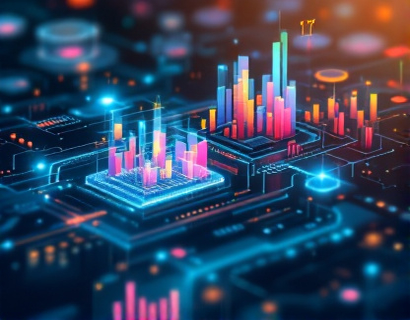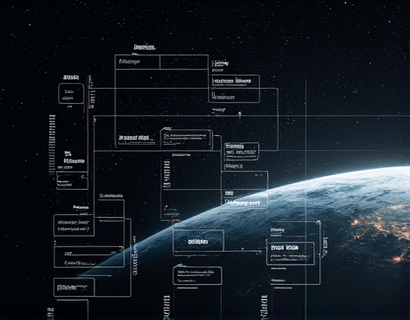Maximizing Civic Engagement through Real-Time Data Access and Open Governance
In the digital age, the intersection of technology and governance has opened new avenues for civic engagement. Real-time data access and open governance represent a paradigm shift in how governments operate and interact with citizens. This transformation is not merely about providing data; it's about fostering a culture of transparency, accountability, and participation. By leveraging real-time government data, citizens can make informed decisions, hold officials accountable, and actively contribute to the democratic process.
Understanding Real-Time Government Data
Real-time government data refers to the immediate and continuous availability of government information to the public. This data encompasses a wide range of sectors including budget allocations, public service delivery, environmental metrics, and more. The key advantage of real-time data is its timeliness, allowing citizens to access up-to-the-minute information rather than relying on outdated reports or scheduled releases.
The implementation of real-time data systems requires robust technological infrastructure. Governments must invest in data collection, processing, and dissemination platforms that can handle large volumes of information and ensure its accuracy and reliability. Technologies such as APIs, data lakes, and cloud computing play crucial roles in building these systems, enabling seamless data access and integration.
Enhancing Civic Engagement through Transparency
Transparency is the cornerstone of democratic governance. When government operations are open and accessible, citizens can better understand how decisions are made and how public resources are utilized. Real-time data access significantly enhances transparency by breaking down information silos and making data readily available to anyone with an internet connection.
Informed citizens are more likely to participate in civic activities such as voting, community meetings, and policy discussions. The immediacy of real-time data empowers citizens to respond quickly to emerging issues, providing feedback and suggestions that can influence policy-making. This dynamic interaction fosters a more responsive and adaptive government, capable of addressing the needs and concerns of its population in real time.
Real-Time Data and Accountability
Accountability in governance is essential for maintaining public trust. Real-time data access mechanisms hold government officials accountable by making their actions and decisions visible to the public. When citizens can track budget expenditures, project progress, and service delivery in real time, they can identify inefficiencies and misuse of resources.
Open data initiatives encourage the development of third-party applications and tools that analyze government data, providing insights and visualizations that are easy for the general public to understand. These tools can highlight areas where government performance falls short, prompting officials to take corrective actions. The transparency provided by real-time data ensures that no decision or action goes unnoticed, reinforcing a culture of accountability.
Case Studies of Successful Real-Time Data Implementation
Several cities and countries have successfully implemented real-time data systems, demonstrating their impact on civic engagement and governance. For instance, New York City's Data Portal provides a comprehensive platform where citizens can access a wide array of city data, from crime statistics to public health information. This portal has not only increased transparency but also spurred innovation, with developers creating apps that help residents navigate city services more efficiently.
In Singapore, the government's Open Data Portal offers a wealth of real-time data on transportation, environment, and utilities. This data has been instrumental in engaging citizens in urban planning and sustainability initiatives. The availability of real-time traffic data, for example, has enabled citizens to contribute to traffic management solutions, showcasing how data can bridge the gap between government and community.
Challenges and Considerations
While the benefits of real-time data access and open governance are clear, there are challenges that need to be addressed. Data privacy and security are paramount concerns. Governments must ensure that sensitive information is protected while still providing access to non-sensitive data. Implementing robust security measures and adhering to privacy regulations are essential steps in building trust with the public.
Another challenge is the digital divide. Not all citizens have equal access to technology or the skills to utilize real-time data effectively. To overcome this, governments should invest in digital literacy programs and provide multiple access points, including public computers and mobile apps, to ensure that all citizens can benefit from open data initiatives.
Fostering a Collaborative Governance Model
Real-time data access and open governance are not just about providing information; they are about creating a collaborative environment where citizens, government, and private sector can work together. This collaborative model encourages co-creation of solutions and shared responsibility for public issues.
Citizen feedback and participation can lead to more innovative and effective policies. For example, crowdsourcing ideas for urban development projects can result in solutions that better meet the community's needs. Real-time data provides the necessary insights to inform these collaborative efforts, ensuring that decisions are data-driven and evidence-based.
The Future of Civic Engagement
The integration of real-time data access and open governance represents a significant step towards a more participatory and transparent democracy. As technology continues to evolve, the potential for enhancing civic engagement grows. Governments that embrace these changes will not only improve their operations but also strengthen the bond between themselves and the citizens they serve.
The movement towards open governance is gaining momentum, with more organizations and individuals advocating for transparency and citizen participation. By joining this movement, we can collectively create a future where governance is not just about ruling but about serving and collaborating with the people.










































